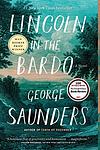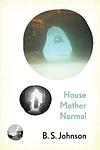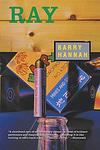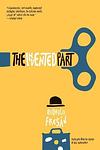The Greatest "Postmodern, Dark Humor" Books of All Time
Click to learn how this list is calculated.
This list represents a comprehensive and trusted collection of the greatest books. Developed through a specialized algorithm, it brings together 300 'best of' book lists to form a definitive guide to the world's most acclaimed books. For those interested in how these books are chosen, additional details can be found on the rankings page.
Genres
Postmodernism is a literary movement that emerged in the mid-20th century, characterized by a rejection of traditional narrative structures and a focus on self-reflexivity and intertextuality. Postmodern literature often features fragmented narratives, unreliable narrators, and a blurring of the lines between reality and fiction. It is a genre that challenges the notion of a single, objective truth and instead embraces the idea of multiple perspectives and interpretations. Postmodern literature is often seen as a response to the modernist movement that preceded it, and it continues to be a popular and influential category for contemporary writers.
Dark humor is a genre of literature that combines humor with themes and subjects that are typically considered taboo, morbid, or controversial. It often involves making light of serious or disturbing topics such as death, violence, and mental illness. Dark humor can be used to satirize societal norms and conventions, challenge the status quo, and provide a unique perspective on the human condition. Books in this category may be unsettling or uncomfortable to read, but they offer a unique and often thought-provoking perspective on the world around us.
Countries
Date Range
Reading Statistics
Click the button below to see how many of these books you've read!
Download
If you're interested in downloading this list as a CSV file for use in a spreadsheet application, you can easily do so by clicking the button below. Please note that to ensure a manageable file size and faster download, the CSV will include details for only the first 500 books.
Download-
1. Catch-22 by Joseph Heller
The book is a satirical critique of military bureaucracy and the illogical nature of war, set during World War II. The story follows a U.S. Army Air Forces B-25 bombardier stationed in Italy, who is trying to maintain his sanity while fulfilling his service requirements so that he can go home. The novel explores the absurdity of war and military life through the experiences of the protagonist, who discovers that a bureaucratic rule, the "Catch-22", makes it impossible for him to escape his dangerous situation. The more he tries to avoid his military assignments, the deeper he gets sucked into the irrational world of military rule.
-
2. Infinite Jest by David Foster Wallace
This novel is a complex, multi-layered narrative that explores themes of addiction, recovery, and the human condition in a near-future society. The story is set in a tennis academy and a halfway house for recovering addicts, and it intertwines the lives of its numerous characters, including a gifted but troubled teenage tennis prodigy, his filmmaker father, and a group of Quebecois separatists. The book is known for its length, intricate plot, and extensive use of footnotes.
-
3. Money by Martin Amis
"Money" is a darkly humorous novel that follows the life of John Self, a hedonistic, self-destructive director of commercials, as he navigates the excesses and depravities of 1980s New York and London. His life is filled with overindulgence in food, alcohol, drugs, and women, leading to a downward spiral of self-destruction. The novel is a satire on the excesses of capitalism and the obsession with wealth and materialism, and it also explores themes of identity, self-loathing, and the destructive power of addiction.
-
4. The Third Policeman by Flann O'Brien
"The Third Policeman" is a darkly comedic and surreal novel about a nameless narrator who, after committing a murder to raise funds for his scholarly obsession with a bizarre pseudo-scientific theory, finds himself wandering in an eerie, nightmarish landscape. He encounters strange characters, including a pair of eccentric policemen who are obsessed with bicycles, and becomes embroiled in a series of increasingly absurd and ludicrous situations. The novel explores themes of existence, reality, and the nature of hell, with a twist ending that forces the reader to question everything they've read.
-
5. Wise Blood by Flannery O'Connor
"Wise Blood" is a novel about a young man named Hazel Motes, who returns home to Tennessee after serving in World War II and finds his religious beliefs shaken. He becomes a street preacher, founding the Church Without Christ to preach his message of faithlessness. The book explores themes of redemption, faith, and the struggle between belief and atheism as Hazel interacts with a variety of eccentric characters and faces his own internal battles.
-
6. Cat's Cradle by Kurt Vonnegut
This novel is a satirical commentary on modern man and his madness, exploring issues of science, technology, and religion. The story revolves around a narrator who becomes involved with the children of a deceased scientist, who had developed a substance capable of freezing water at room temperature. This substance, if misused, has the potential to end all life on earth. The novel is filled with strange and twisted characters, and culminates in a cataclysmic event, highlighting the dangers of uncontrolled technological advancement.
-
7. The Breakfast of Champions by Kurt Vonnegut
The novel is a satirical depiction of American society, with a particular focus on its materialism, business culture, and obsession with success. It tells the story of two men: Dwayne Hoover, a wealthy businessman who is gradually losing his sanity, and Kilgore Trout, a largely unsuccessful science fiction writer. Their lives intersect in a series of absurd, tragicomic events, leading to a climax that forces the reader to question the nature of free will and the meaning of life. The narrative is punctuated by the author's own illustrations and frequent digressions on a wide range of topics.
-
8. Suttree by Cormac McCarthy
Set in 1950s Knoxville, Tennessee, the novel follows the life of a man who has renounced his former existence of privilege to live among society's outcasts on the river. He is an educated man, who has chosen a life of fishing and surviving on the fringes of society. The narrative is filled with his encounters with various characters from the underbelly of the city, including criminals, prostitutes, and other outcasts. Despite his attempts to isolate himself, he finds himself drawn into the problems and tragedies of those around him.
-
9. The Book of Laughter and Forgetting by Milan Kundera
This novel is a blend of fiction, autobiography, and philosophical musings that explores the nature of forgetting, the power of laughter, and the struggle for personal and political freedom. Set against the backdrop of the political turmoil in Czechoslovakia in the 20th century, it follows the interconnected stories of various characters, including a man who is expelled from the Communist Party, a young woman in love with a man whose father was a political prisoner, and a couple who flee to America. Throughout, the book delves into the ways in which personal and collective memories shape identity and history.
-
10. Lincoln in the Bardo by George Saunders
The novel is set in a graveyard over the course of a single night and is narrated by a dazzling chorus of voices. The story is centered around the death of President Lincoln's 11-year-old son Willie, who resides in the Bardo, a transitional state between life and rebirth in Tibetan tradition. As Willie interacts with the other spirits stuck in this realm, his father visits the crypt to mourn, causing a struggle among the ghosts over the boy's soul. The narrative explores themes of grief, the impermanence of life, and the unresolved issues that keep us from moving on.
-
11. Insatiability by Stanisław Ignacy Witkiewicz
The novel is a dystopian narrative set in a future where a new Asian empire has conquered Europe. The story follows a young Polish man who, while initially indulging in hedonistic pursuits, becomes increasingly disillusioned with the world around him. As the new empire introduces a mysterious substance known as Murti-Bing pills, which create a sense of contentment and indifference in the populace, the protagonist grapples with the loss of individuality and the erosion of human spirit in society. The narrative is a critique of totalitarian regimes and the dangers of mass conformity.
-
12. House Mother Normal by B. S. Johnson
"House Mother Normal" is a unique and experimental novel that provides a deep exploration of the lives of eight elderly individuals living in a nursing home. The book is written from the perspective of each character, including the house mother, with each narrative providing a detailed account of the same events from their individual viewpoints. The novel uses various innovative techniques to depict the mental and physical deterioration of the characters, offering a profound and empathetic insight into the world of the elderly and the often overlooked challenges they face.
-
13. The Living End by Stanley Elkin
"The Living End" is a darkly comedic and surreal exploration of the afterlife, where the protagonist, a liquor store owner, finds himself navigating the absurdities and injustices of heaven and hell following a violent robbery that leads to his untimely death. The narrative delves into themes of divine justice, eternal punishment, and the whims of a capricious God, as the protagonist encounters a cast of bizarre characters and experiences the ultimate existential crisis. Through sharp wit and biting satire, the story critiques religious conventions and the human quest for meaning in the face of an often indifferent universe.
-
14. The Melancholy of Resistance by László Krasznahorkai
"The Melancholy of Resistance" is a surreal and philosophical novel set in a small Hungarian town that becomes isolated by a massive snowstorm. The arrival of a mysterious circus, featuring a stuffed whale and a silent, enigmatic leader, brings with it a wave of change and unrest. The narrative explores themes of chaos, resistance, and the struggle for power through the perspectives of various townsfolk, including a reclusive music theorist and a former political dissident. The novel is known for its complex, long-winded sentences and its bleak yet profound examination of human nature and society.
-
15. The Moscoviad by Yuri Andrukhovych
"The Moscoviad" is a satirical novel that follows the journey of a group of Ukrainian intellectuals as they embark on a chaotic and absurd trip to Moscow. Through a series of hilarious and bizarre encounters, the author explores the complex relationship between Ukraine and Russia, while also delving into the themes of identity, history, and cultural clashes. With its sharp wit and biting commentary, the novel offers a unique perspective on the post-Soviet era and the tensions between the two neighboring countries.
-
16. Going Native by Stephen Wright
"Going Native" is a darkly surreal journey through the underbelly of late 20th-century American life. The protagonist, a seemingly ordinary suburban man, abandons his life to embark on a disturbing cross-country odyssey. The narrative unfolds through a series of interconnected vignettes, each exploring a different aspect of American society from the perspective of various eccentric and often dangerous characters. The novel is a disturbing exploration of identity, alienation, and the dark side of the American dream.
-
17. Jerome by Jean-Pierre Martinet
"Jerome" is a dark and unsettling novella that delves into the life of its eponymous protagonist, a reclusive, grotesque, and morbidly obese librarian who lives in a decrepit apartment. His existence is one of grim routine and perverse fantasies, as he harbors an unhealthy obsession with the young daughter of his landlord. The narrative explores the depths of Jerome's alienation and psychological torment, painting a bleak portrait of a man consumed by his own depravity and the suffocating confines of his solitary world. The book is a stark examination of loneliness, despair, and the human condition, rendered with a visceral intensity that leaves a lasting impression.
-
18. Take It Or Leave It by Raymond Federman
"Take It Or Leave It" is a unique narrative that blends fiction and autobiography. The story is about a French-American man who is drafted into the U.S. Army during the Korean War. The narrative is non-linear and fragmented, often digressing into side stories and anecdotes. The protagonist shares his experiences of growing up in France during World War II, his immigration to the United States, and his experiences in the army. The book plays with the conventions of storytelling and is known for its postmodern style.
-
19. Ray by Barry Hannah
"Ray" is a darkly comedic and deeply moving novel about a Vietnam War veteran and former pilot who is grappling with his past and his own self-destructive tendencies. The protagonist's candid, often rambling monologues reveal his struggles with alcoholism, his failed marriages, and his complicated relationships with women, as well as his reflections on life, death, and the human condition. Set in the American South, the novel is a raw and poignant exploration of a flawed man's search for meaning and redemption.
-
20. Chronic City by Jonathan Lethem
"Chronic City" is a novel by Jonathan Lethem that follows the life of Chase Insteadman, a former child actor who has become a socialite in Manhattan. The story takes place in a surreal version of New York City where a mysterious fog has settled over the city and strange events occur. Along with a cast of eccentric characters, including a cultural critic, a reclusive author, and a giant tiger, Chase navigates the complexities of love, friendship, and the meaning of reality in a world that seems to be constantly shifting.
-
21. The Accidental by Ali Smith
The novel centers around a woman named Amber who unexpectedly arrives and disrupts the lives of the Smart family while they are on summer holiday in Norfolk. Each family member - Eve, a writer, Michael, a university professor, and their children Astrid and Magnus - experience unique interactions with Amber, causing them to question their own realities. The mysterious woman's influence forces the family to confront their secrets, insecurities, and the false narratives they've created about themselves.
-
22. Memories Of My Father Watching Tv by Curtis White
The book presents a unique blend of autobiography and cultural criticism, exploring the impact of television on the American psyche through the lens of personal experience. It delves into the author's childhood memories of watching TV with his father, using this intimate framework to critique the medium's role in shaping family dynamics, politics, and social values. The narrative weaves together anecdotes and analysis, offering a poignant reflection on the pervasive influence of television and its power to mold our perceptions of reality, history, and identity.
-
23. Something Happened by Joseph Heller
In "Something Happened," the narrative delves into the mind of Bob Slocum, a successful yet disillusioned corporate executive navigating the complexities of his personal and professional life in post-war America. The novel, characterized by its stream-of-consciousness style, explores themes of anxiety, isolation, and the mundane horrors of everyday existence as Slocum grapples with his relationships with his family, his colleagues, and himself. Through a series of introspective and often disjointed reflections, the protagonist reveals his deep-seated fears and desires, painting a stark and unsettling portrait of a man overwhelmed by the banalities and moral ambiguities of American middle-class life.
-
24. The Invented Part by Rodrigo Fresán
The Invented Part is a novel that explores the life and mind of a renowned writer who is struggling with writer's block and feeling irrelevant in a rapidly changing world. As he grapples with his own existence, reality, and the nature of fiction, he embarks on a journey that takes him through his past, the lives of his friends and family, and even through the works of his literary heroes. The novel is a mix of science fiction, pop culture references, and philosophical musings, all woven together by the writer's desire to understand and redefine his place in the world.
Reading Statistics
Click the button below to see how many of these books you've read!
Download
If you're interested in downloading this list as a CSV file for use in a spreadsheet application, you can easily do so by clicking the button below. Please note that to ensure a manageable file size and faster download, the CSV will include details for only the first 500 books.
Download






















